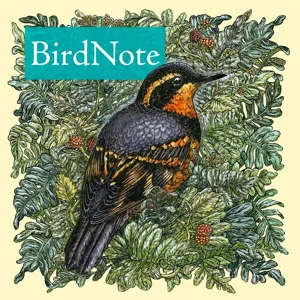Stone-Cold Hydrilla

25 years ago, a mysterious cause of eagle and osprey deaths plagued a small town in Arkansas. And in this special episode, we get to the root of it all: small unassuming weeds, also known as invasive aquatic species. In conversation with aquatic plant experts Stacy Holt Jr. and Greg Bugbee, we share what these invasive plants are, how this happened, what they’re doing in other parts of the world (like Connecticut), and ways we can all prevent them from spreading. Co-produced by our guest host, Adé Ben-Salahuddin. Listen in now!
For more information about the From Love to Action campaign, episode transcript and other resources from this episode, visit BirdNote.org.
Want more Bring Birds Back? Subscribe to our show and follow us on Instagram! For more about BirdNote, sign up for our weekly newsletter. And for ad-free listening and other perks, sign up for BirdNote+ here.
BirdNote is a nonprofit. Your tax-deductible gift makes these shows possible.
Bring Birds Back Special Season 5 is sponsored by the Cornell Lab of Ornithology.







